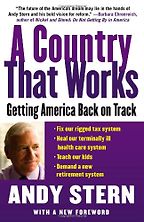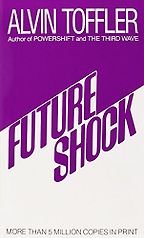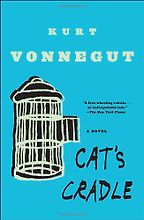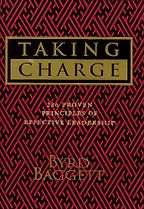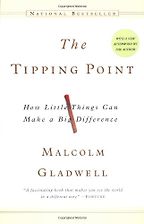You picked A Country That Works, which you wrote in 2006. It covers your own personal story, the story of many challenges America faces, including inequality, and it’s also a policy book. What do you think it says about progressivism today?
What I think it says, about not just progressivism but about America, is that we are at a unique historical moment and this is not our fathers’ and grandfathers’ economy. In fact, we are in the midst of a significant transformation – what really is a third economic revolution in world history. The agricultural revolution took 3,000 years to transition, and the industrial revolution took 300. It’s important to understand that we, in a single generation, are going to witness an entire revolutionary moment and that everything is changing. So the book is really about how people and policy and countries can think about a different way to make progress than our parents and grandparents thought about.
What are the solutions that you are most hopeful about?
When countries realise that they are teams, then they appreciate that the market in a global economy works differently to the market in a national economy alone. It forces America to really come together and think about how we’re going to make sure that the American dream continues. It’s no longer the case that people have one job in their lifetime – employer-based healthcare and employer-based pensions aren’t going to work when my son is going to have had nine to 12 jobs by the time he’s 35. We need to think about job creation, not simply let the market make decisions but think about a partnership between the public sector and the private sector. The book is about how we invest, where the jobs of the future are going to be, and how we help accelerate those jobs. It’s an effort to say that to make progress in the 21st century, we need to shed the 20th century market fundamentalism and move to a more shared sense of teamwork as a country.
Another theme in the book is reform of institutions. You spend a considerable amount of time talking about institutions that have formed the basis of progressive infrastructure, including unions themselves. Is there a broader political message there about reforming ourselves first?
I think every institution is in the middle of the biggest challenges they’ve ever faced. They’re facing the challenge of either changing, or being swallowed by change. I know the labour movement has a tremendous history, but that history won’t make it successful in the future – it’s up to labour to change by looking at those factors within its own control. In SEIU [the Service Employees International Union], whether we spend our money on growth or on defending the members we have, is a very big choice. One was about history and the other was about the future. Institutions – and I think this relates to political parties, unions and many other people – are not going to drive into the future looking in the rear-view mirror. There are new realities, new technologies, new factors at play, and we need to build a 21st century plan for success – starting by taking a real good look in the mirror to make sure we’re not just trying to continue the old ways. I think that will guarantee success in a new moment.
Future Shock, written by the futurist Alvin Toffler in 1970, is quite an interesting choice. In some ways I read it as a manual on how to adapt to change. Why did you pick this book?
I think Future Shock actually did foretell the future, because it talks about how in essence we’re building a new civilisation in front of our eyes. How no group of people have ever been so shocked by the ever-changing realities that have completely altered media, lifestyles, culture and work. In some ways they were the canary that was singing about a future that they saw well before anyone quite appreciated it. Interestingly, people like Newt Gingrich have taken that understanding of fundamental – in some ways radical – change, and adapted it to a new set of ideas that aren’t the way that would necessarily serve the interests of people. But to his credit, he created a suite of ideas and institutions that are understanding the change. I think that’s a lesson for progressives – that we also need to find the new way forward, which requires new thinking, new ideas and a willingness to be transformational as opposed to traditional.
Does the book describe how people will address change, and does that tell us something about the acceptance of change in our society? I am trying to delve into whether there’s a message about change versus the status quo that says something deeper about progressivism, and has pushed for a change in the United States.
Future Shock says that when people are confronted with massive change, there’s a tendency to hold on to the way things are. Institutions resist change. A leader’s job is to understand change and try to figure out a way to work with it that serves people’s interests, as opposed to thinking that people’s interests are served by resisting change. Traditional churches, unions or media who have tried to either forestall change or ignore it have paid a price.
Your third book is Cat’s Cradle, a novel by Kurt Vonnegut. Why did you choose that book, what does it say, and why does that occur to you as something for a progressivism series?
I think it’s something that progressives need to think about, because the book talks a lot about two tendencies that people can adopt, to try to find meaning and purpose. One is kind of a sheer technological approach, and the other is more of a spiritual and religious approach. The book talks about the perils and challenges of each way. Sometimes we as progressives defend technology and science and fact, and other people – clearly both progressive and otherwise – appreciate the spiritual more. Then on either extreme, the book tries to say that blind adherence to either tendency also has huge problems. The book, for me, is about trying to seek meaning, not trying to find simple answers, and appreciating that in some ways following a belief to an extreme can be equally as dangerous as having no beliefs.
It also uses satire to address some of the absurdities of these issues. I was wondering if that struck you in a particular way?
It did. I think all of us in our own community, sometimes, can adopt a set of beliefs and practice them to the exclusion of other ideas. Being progressive doesn’t mean not being challenged by other people’s point of views, it doesn’t mean having a politically correct tendency, and it doesn’t mean crowding out all other ideas. I think the book, in a very satirical way, points to what happens when we become so single-minded and passionate about a single idea to the exclusion of others that we just lose our way.
Your fourth choice is Taking Charge. It details 236 different ideas for effective leadership. Is there one or a few ideas listed that really spoke to you in terms of progressivism? Why did you choose this book?
It’s a funny book, I know, but it’s actually a book I give out to people who are taking new leadership positions. Sometimes I think we over-intellectualise leadership, and that there are simple statements that mean a lot. I always liked the one in the book about a group of people committed to a shared vision who could achieve the impossible. It was somewhat like Margaret Mead’s quote: “Never doubt that a small group of thoughtful, committed people can change the world. Indeed, it is the only thing that ever has.” Or, “Accept blame as well as fame.” I think that’s very timely in a competitive world, certainly in the progressive community, when we’re all in search of fame but no one really wants to accept blame, responsibility and accountability.
Five Books interviews are expensive to produce. If you're enjoying this interview, please support us by donating a small amount.
There’s another one I like about “exerting your will through persuasion, not intimidation”, which is about how you build a team around a common set of values and ideas, and not just run a command-and-control organisation. I found the book useful if you’re going to make changes, be a progressive and be a leader. It helped me think about my own leadership style and my own responsibilities to other people in fairly simple, enjoyable soundbites.
So much of progressivism is trying to make change in your community, or the country or the world, and in some ways I thought of it as a how-to manual.
It is on a personal level, as opposed to books about policy change at the macro level. It’s helpful for me to see it as: How do I exert my own influence? How do I find my own leadership style? What kinds of remark help trigger the whole issue about accepting blame, not just fame? The issue of accountability is huge for a leader. A lot of things that are said about shared responsibility, about reaching for the stars because you might just hit the moon, are statements that in many ways are the Cliff Notes version of very serious work about leadership. I always think what’s important is that you’re constantly being reflective while trying to make changes in your leadership style and leadership role.
Your final book is The Tipping Point, by Malcolm Gladwell. This, in a way, is also a description or an analysis of making change. Is that one of the reasons why you chose the book, and what are the other reasons?
I think that when we talk about making change, it is much more about macro change, like in policy. This book reminds you that at times when you’re building big movements, or trying to elect significant decision-makers in politics, sometimes it’s the little things that make a difference. Ever since the book was written, we’ve become very used to the idea of things going viral unexpectedly and then having massive impact. The Tipping Point, to me, is really an appreciation that very small things can rearrange thinking in ways – like infectious diseases – that have huge implications. While we’re always searching for the big policy changes – and we think we have to do that in very traditional ways of building coalitions against constituencies, movements and the media – sometimes it’s the little things that actually tip the situation. Like the story of a person and their unique set of circumstances that really captures an issue about health care or housing. So it’s trying to remember, while you’re thinking about the grand and the glorious, that thinking about the small things can equally bring about change.
Get the weekly Five Books newsletter
Do you think that message is uniquely empowering for progressives, because it is these things that smaller groups of people can actually affect that do make significant change? It is getting back to the Margaret Mead idea that a few people can make a big difference.
I think it’s two things. One is that you can actually look for a tipping point – it’s not merely coincidences, but it’s different than looking for big macro change and a different strategic way of thinking. And two is that sometimes while you think you’re in charge of everything, individual people in the right place and time can actually make a difference. It’s also the message that, while in the 20th century it may have been that you needed huge institutions to make change, in the 21st century there’s a lot of change that can be made by thoughtful, committed people.
Five Books aims to keep its book recommendations and interviews up to date. If you are the interviewee and would like to update your choice of books (or even just what you say about them) please email us at [email protected]
